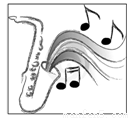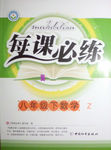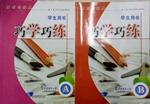题目内容
完形填空
A crowd gathered recently to hear a popular jazz band. The music was good, and the _______ were very talented. But everyone had come to see one player _______,the 9?year?old boy, Jose Andre Montano.
Why were so many music?lovers interested in _______ this young man perform? It is because he is a jazz _______, and he is blind.

Jose's life began in Totora, Bolivia, ________ he was born blind. Yet _______ his lack of sight, the boy began playing the drums at the age of 4. He showed a(n) _______ ability, and before long, he was playing the _______, too. By the age of 5 he had formed his own jazz trio (三重奏). His parents, along with everyone else, are _______ surprised by his wonderful talent. “I didn't know ________ before; he got me into it,” said his father, Roberto. “I don't know how to explain how it _______. It's like jazz was _______ inside him.”
Many professional musicians are equally ________ and welcome the chance to ________ with Jose. They have noticed his deep understanding of this unique form of music. Singer Vero Perez says the exceptional thing about Jose isn't his age or even his _______. According to Perez, “He shows other musicians how jazz music really is to be played.”
As Jose's fame _______, he has more chances to tour and perform. He has traveled throughout Bolivia and into Brazil and Peru.
When Jose is at home with his family, he is a _______ little boy. He goes to school and does his homework. _______ when he begins playing the piano or drums, his musical genius becomes obvious. Jose has proved that nothing will keep him from doing what he loves best. His positive _______ towards life encourages others to look past their own obstacles and _______ their dreams.
1.A.singers B.actors C.musicians D.dancers
2.A.in person B.in particular C.by mistake D.by chance
3.A.celebrating B.encouraging C.noticing D.watching
4.A.genius B.fool C.inventor D.conductor
5.A.what B.where C.when D.which
6.A.through B.for C.although D.despite
7.A.amusing B.frightening C.amazing D.interesting
8.A.drum B.computer C.song D.piano
9.A.continuously B.normally C.strangely D.suddenly
10.A.rock B.folk C.jazz D.blues
11.A.came about B.came back C.turned up D.turned off
12.A.only B.already C.never D.hardly
13.A.depressed B.confused C.impressed D.worried
14.A.live B.chat C.fight D.perform
15.A.carelessness B.blindness C.deafness D.loneliness
16.A.promises B.appears C.lifts D.spreads
17.A.lazy B.happy C.normal D.funny
18.A.But B.So C.Because D.Since
19..A.success B.attitude C.dream D.performance
20.A.reach for B.call for C.ask for D.send for
 每课必练系列答案
每课必练系列答案 巧学巧练系列答案
巧学巧练系列答案


